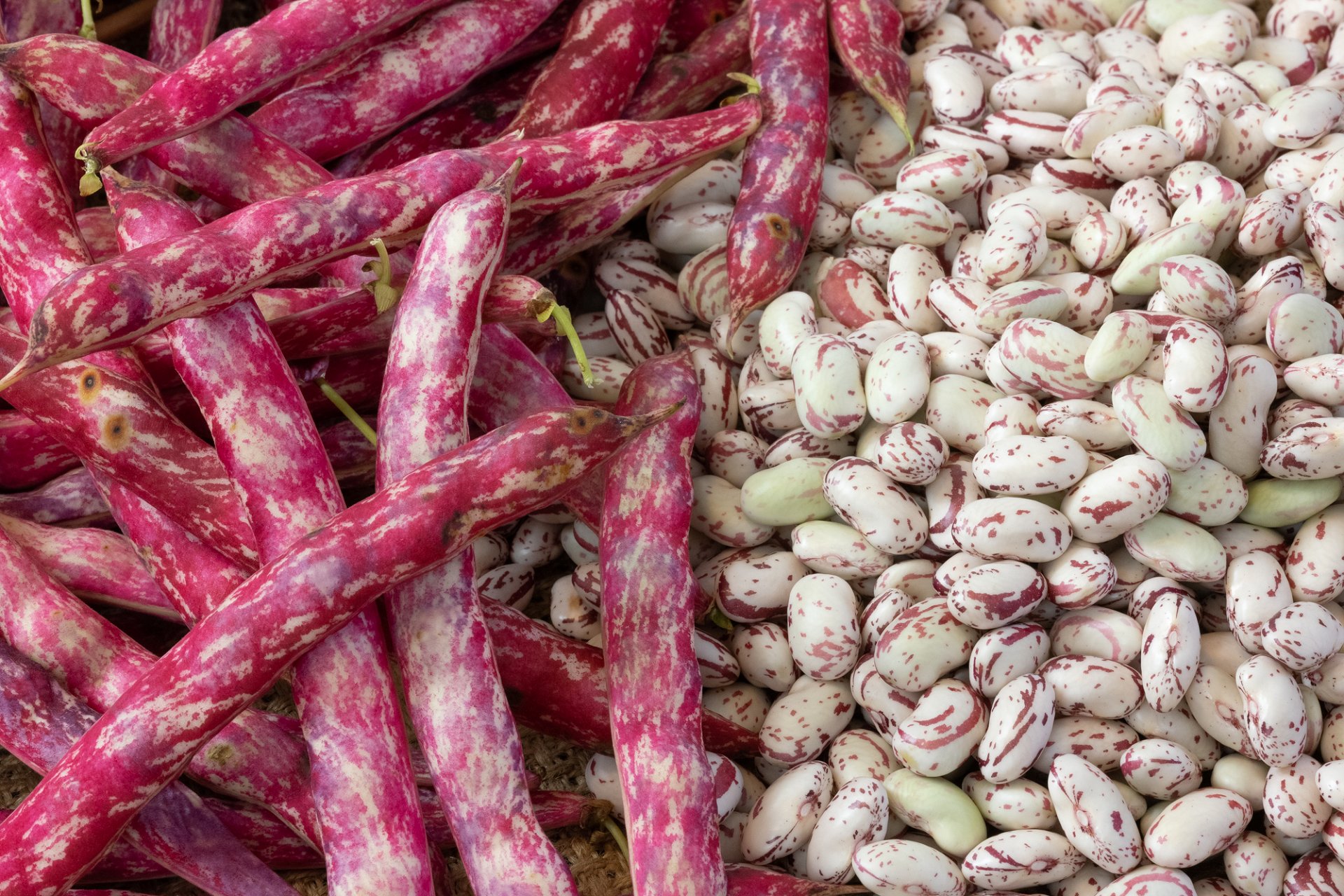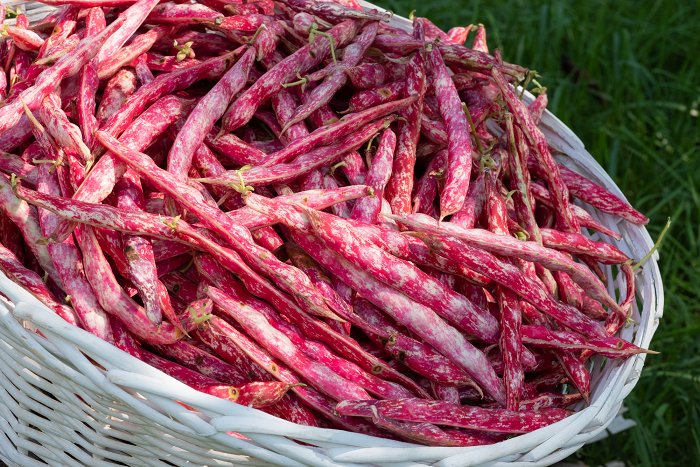This ancient mountain legume was once cultivated in abundance in the Alta Val Torre, so much so that there are still traces of it in some traditional local recipes. A variety that is particularly sought after for its valuable organoleptic characteristics, it has been cultivated less over the years, declining to the point that in 2007 the University of Udine launched a project aimed at preventing the gene's disappearance.
Today, this bean is still cultivated in the municipality of Lusevera and is named after its caretaker, Fiorina, a grower who, season after season, kept the seed alive, allowing other local families to cultivate it in turn.
Since 2012, Kmečka Zveza, the Municipality of Lusevera and the Prealpi Giulie Park have signed an agreement aimed at the enhancement and dissemination of this prized borlotto ecotype. With pods approximately 20 cm long and containing an average of 5-6 oval-shaped seeds, Fiorina is characterised by red mottling on a beige background and is sown in early May and harvested between late August and September.
Since 2014, thanks to the work of institutions, farmers and local restaurateurs, it has been included in the national list of traditional agri-food products (Decree of 5 June 2014 of the Ministry of Agricultural, Food and Forestry Policies) together with 'stak', a traditional dish of the Alta Val Torre (and a counterpart of 'štokja' or 'štakanje' from the Natisone Valleys), made with the same Fiorina bean, as well as potatoes and lard.
For more information:
www.ersa.fvg.it/cms/consumatore/prodotti/prodotti-vegetali/Fagiolo-Fiorina.html
www.parcoprealpigiulie.it/it/principale/iniziative-e-progetti/il-paniere-del-parco/fagiolo-fiorina-di-lusevera
Fiorina di Lusevera climbing beans
A typical mountain bean from the municipality of Lusevera, saved by Fiorina di Micottis (Lusevera), from whom it now takes its name.


